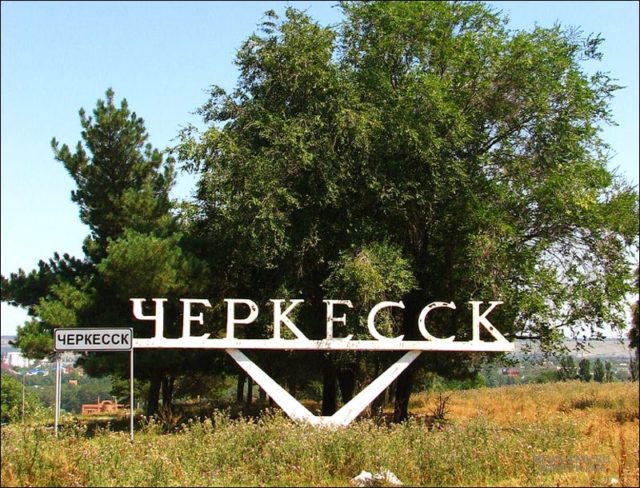
Why Is Karachaevo-Cherkessia Quiet When Its Neighbors Suffer From Violence?
Publication: Eurasia Daily Monitor Volume: 13 Issue: 171
By:

Karachaevo-Cherkessia, a small republic in the Northwestern Caucasus, was among the first areas of the Russian Federation to witness a rise in Islamic jamaats during the 1990s. Yet today, Karachaevo-Cherkessia is a relatively quiet place, unlike neighboring Kabardino-Balkaria and most other North Caucasus republics to the east. The contrast is quite puzzling, given many of the risk factors that Karachaevo-Cherkessia shares with Kabardino-Balkaria and other volatile republics in the region.
The Karachay battalion took part in the first Russian-Chechen war of 1994–1996. Ethnic Karachays were implicated in the bomb attacks on the Moscow metro in the 1990s. Karachays were also reportedly involved in the explosions of houses in Moscow in 1999, which paved the way for the second Russian-Chechen war. According to Karachaevo-Cherkessian lawyer Ruslan Kubanov, radical Islamists have since left the republic, while their sympathizers came to an informal agreement with local law enforcement officials. “The authorities promised not to use unjustified violent methods against [Muslim] believers, and they, in turn, pledged not to touch the police and not to stir tensions,” Kubanov told the Onkavkaz.com news analysis agency. Kubanov further argued that the police in Karachaevo-Cherkessia generally do not use unwarranted brutality toward suspects, unlike in the more violent republics of the North Caucasus. At the same time, the lawyer conceded that the police in the republic still sometimes used unlawful methods of investigation, but he only recalled a few such cases, and in those the suspect’s guilt was already pretty well established. Ruslan Kambiev, a government inspector for human rights in Stavropol region, told Onkavkaz.com that the authorities in Karachaevo-Cherkessia abstained from harassing Muslims for their beliefs and punished them only if they actually broke the law (onkavkaz.com, October 19).
According to data published by the Kavkazsky Uzel news agency, Karachaevo-Cherkessia had the lowest number of violent attacks during the period of 2010–2015 of any federal entity in the North Caucasian Federal District. The republic had fewer victims of terrorist attacks than even the predominantly non-Muslim territories of North Ossetia or Stavropol region (Kavkazsky Uzel, February 10).
Though small, with only half a million residents, Karachaevo-Cherkessia has a particularly ethnically and religiously diverse population. Ethnic Karachays, a Turkic-speaking people, comprise a plurality in the republic, with 41 percent. Ethnic Russians come in second with 32 percent. Ethnic Circassians (a.k.a. the Cherkess) make up 12 percent of the republican population. Abazins, who are linguistically related to both the Circassians and the Abkhaz, comprise 8 percent of the population. Another Turkic-speaking group, the Nogais, make up a little over 3 percent. Karachaevo-Cherkessia has the second-largest proportion of ethnic Russians after Adygea in the North Caucasus. This may explain both why the authorities are less willing to use unbridled brutality in the republic, and also why they might have better information about militants to launch more targeted assaults on the suspected militants. Russian authorities habitually use heavier firepower against non-Russian suspects than against ethnic-Russian criminals in predominantly ethnic-Russian regions. Under Soviet rule, Karachaevo-Cherkessia was part of the large Russian-majority Stavropol region, which also probably had an effect on the republic due to improved intelligence networks the Russian security services had in the area.
Despite the relative peace in Karachaevo-Cherkessia in recent years, the situation may not last. On October 20, the Federal Security Service’s (FSB) spokesperson in Karachaevo-Cherkessia announced that the security services intercepted a group of six people in the republic who had pledged allegiance to the Islamic State. The group of militants reportedly planned attacks on government offices (TASS, October 20). The leader of the group, a 19-year-old unnamed man reportedly came from a Russian Orthodox family. The group had not carried out any attacks; it had only collected information. Experts warn that the high level of unemployment, the republic’s archaic clan structures, as well as corruption all facilitate the spread of social protest. Some dark forces can always be found that will utilize such social protests for their own interests, analysts argue (Onkavkaz.com, October 21).
Another way of explaining the relative peace in Karachaevo-Cherkessia is to look at the degree to which government institutions in the republic are being infiltrated by religious individuals. Experts admit that religiosity among young people in the republic has increased in the past two decades. Thus, the state bureaucracy and the local police forces are more religiously infused than they used to be in the past. Kubanov noted, “They [religiously inclined government functionaries and police officers] pray in a mosque with everyone. It brings people together. When a young man, who is prone to aggression, prays next to a government official or a police officer, he begins to better understand them and regard them as normal people rather than enemies. Similarly, the police officer can no longer revert to cruel methods of investigation against a person who prays next to him” (Onkavkaz.com, October 19).
A greater understanding between the Muslim community and the regional authorities in Karachaevo-Cherkessia certainly can lead to better security outcomes. However, it is unclear whether Moscow will tolerate this for long. The example of Kabardino-Balkaria indicates that the authorities normally prefer to strike preemptively to antagonize, alienate and radicalize the Muslim community in order to justify the government terror that follows. So far Karachaevo-Cherkessian society has managed to combine government pressure against radicals with the absence of extreme brutality. But the republic is still at risk for interference by Moscow if the latter decides that there is too much rapprochement between the local Muslim community and the republican government.



